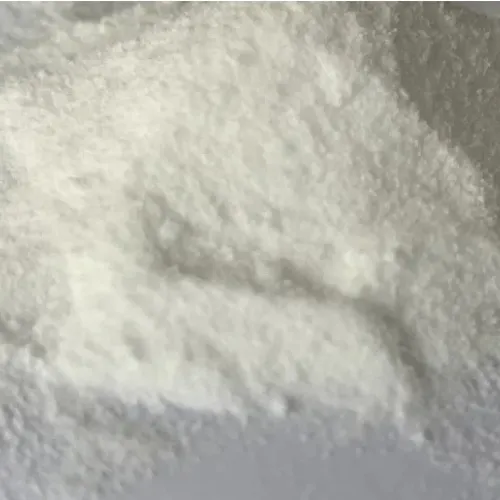Warning: Undefined array key "title" in /home/www/wwwroot/HTML/www.exportstart.com/wp-content/themes/1198/header.php on line 6
Warning: Undefined array key "file" in /home/www/wwwroot/HTML/www.exportstart.com/wp-content/themes/1198/header.php on line 7
Warning: Undefined array key "title" in /home/www/wwwroot/HTML/www.exportstart.com/wp-content/themes/1198/header.php on line 7
Warning: Undefined array key "title" in /home/www/wwwroot/HTML/www.exportstart.com/wp-content/themes/1198/header.php on line 7
Oct . 16, 2024 13:04 Back to list
Understanding the Role of Propylene Glycol in Antifreeze Solutions and Their Applications
Understanding Propylene Glycol and Its Role in Antifreeze
Propylene glycol, a synthetic compound derived from petroleum, has found widespread use across various industries due to its unique properties. Although it may often be used in food products, pharmaceuticals, and cosmetics, one of its key applications lies in the automotive and heating sectors—specifically, as a component of antifreeze.
What is Propylene Glycol?
Chemically, propylene glycol is classified as a diol, meaning it contains two hydroxyl (-OH) groups. Its chemical formula is C3H8O2, and it exists as a colorless, odorless liquid that is hygroscopic (it can absorb moisture from the air). This property, alongside its low toxicity, makes propylene glycol a preferred choice in many formulations.
In contrast to ethylene glycol, another common antifreeze agent, propylene glycol boasts a lower toxicity profile, making it safer for use in applications where accidental ingestion could occur. This characteristic is particularly crucial in environments involving food processing or products intended for human consumption. For example, propylene glycol is often used in food as a humectant, solvent, and preservative.
The Role of Propylene Glycol in Antifreeze Solutions
When it comes to antifreeze, propylene glycol acts primarily as a coolant and heat transfer fluid
. Its low freezing point allows it to remain liquid at much lower temperatures than water, providing protection against freezing and ensuring that the engine and other components operate efficiently, even in frigid conditions.Antifreeze solutions typically consist of a mixture of propylene glycol, water, and various additives. The combination of these ingredients allows the fluid to achieve optimal thermal conductivity, corrosion resistance, and protection against freezing. In many modern vehicle cooling systems, propylene glycol-based antifreeze is preferred due to its non-toxic elements and biodegradability, representing a responsible choice for environmentally conscious consumers.
propylene glycol and antifreeze

Benefits of Using Propylene Glycol in Antifreeze
1. Low Toxicity Unlike ethylene glycol, which can be lethal if ingested, propylene glycol is considered safe for humans and pets. This safety factor plays a crucial role in households with animals or young children, making propylene glycol-based antifreeze a favorable option for many. 2. Biodegradable Propylene glycol can break down relatively easily in the environment, which mitigates the ecological impact compared to more toxic alternatives. This quality is desirable in industries that prioritize sustainability and environmental protection.
3. Effective Heat Transfer Propylene glycol effectively maintains a consistent temperature within engines, minimizing wear and tear and promoting operational efficiency. Its heat-capturing properties ensure that engines do not overheat.
4. Versatility Beyond its use in simple antifreeze solutions, propylene glycol can also serve multiple functions in myriad applications—from being a moisture-retaining ingredient in food products to serving as a carrier for active ingredients in pharmaceutical formulations.
Applications Beyond Automotive
Beyond its role in automotive antifreeze, propylene glycol is widely utilized in many other areas. In the pharmaceutical sector, it serves as a solvent for drugs, allowing for efficient absorption in the body. In the food industry, it helps maintain moisture in baked goods, and it can enhance the texture and consistency of various products. Additionally, propylene glycol is a key ingredient in many cosmetic items, including lotions and creams, due to its ability to retain moisture and enhance smoothness.
Conclusion
Propylene glycol has established itself as a safe, effective, and versatile compound across a range of industries. Its usage in antifreeze not only promotes engine performance and reliability but also provides a safer alternative to traditional glycol solutions. As industries continue to evolve and prioritize environmental responsibilities, propylene glycol is likely to play an increasingly significant role in sustainable practices, ensuring that performance does not come at the expense of safety or ecological health. With its broad applicability and benefits, propylene glycol stands out as an essential component of modern antifreeze formulations, demonstrating that safety and functionality can indeed go hand in hand.
Latest news
-
Certifications for Vegetarian and Xanthan Gum Vegetarian
NewsJun.17,2025
-
Sustainability Trends Reshaping the SLES N70 Market
NewsJun.17,2025
-
Propylene Glycol Use in Vaccines: Balancing Function and Perception
NewsJun.17,2025
-
Petroleum Jelly in Skincare: Balancing Benefits and Backlash
NewsJun.17,2025
-
Energy Price Volatility and Ripple Effect on Caprolactam Markets
NewsJun.17,2025
-
Spectroscopic Techniques for Adipic Acid Molecular Weight
NewsJun.17,2025

